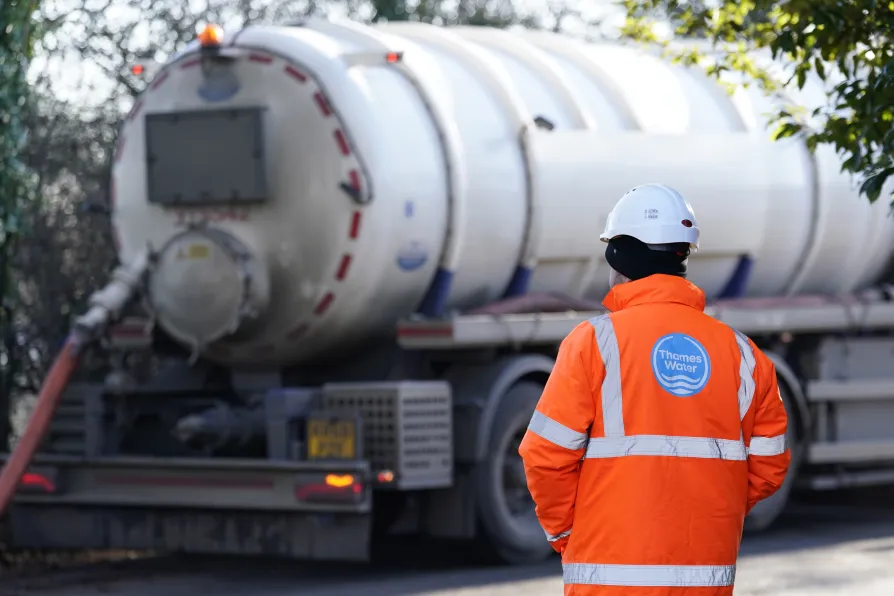
 A tanker pumps out excess sewage from the Lightlands Lane sewage pumping station in Cookham, Berskhire, January 10, 2024
A tanker pumps out excess sewage from the Lightlands Lane sewage pumping station in Cookham, Berskhire, January 10, 2024
NEWLY proposed pollution fines would amount to little more than “pocket change” for water firms whose profits run to billions, environmental campaigners have warned.
The government launched a consultation today to expand and strengthen the current range of financial penalties available to the Environment Agency (EA).
Under the proposed changes, water companies that commit smaller environmental offences could face fines of up to £500,000.
The EA struggles to impose penalties for minor and moderate offences, the government says, as they need proving to the same standard used in criminal courts.
But under the changes, the standard of proof would be lowered, making it easier and quicker to impose fines.
Other proposals include introducing new automatic penalties of up to £20,000 for specific breaches without the need for longer investigations, similar to a speeding ticket.
Environment Secretary Emma Reynolds said: “With new, automatic and tougher penalties for water companies, there will be swift consequences for offences, including not treating sewage to the required standard and maintenance failures.”
But River Action CEO James Wallace warned that fines of £500,000 are “pocket change” to billion-pound companies like Thames Water.
He said: “We welcome the wider reforms and the move to use civil standards instead of lengthy legal processes, but the British public doesn’t want another consultation — they want action.
“The government must end the failed privatisation model of criminal polluters like Thames Water to stop river pollution.”
The new powers were already created under the Water (Special Measures) Act, but they now must be subject to consultation before implementation.
Henry Swithinbank, senior policy and advocacy manager at Surfers Against Sewage, said: “This rehashed announcement is nothing more than the sign of a desperate government cowering from the truth.
“Anything short of changing the ownership model of our broken water industry is a hollow gesture doomed to fail.
“Shareholders rake in billions, yet the government talks about fines measured in the hundreds of thousands.
“It simply doesn’t add up, and Keir Starmer’s government knows it.”
Richard Benwell, chief executive of Wildlife and Countryside Link, said: “Fines must be large enough to deter non-compliance and prevent pollution from being treated as an acceptable cost of doing business.”










